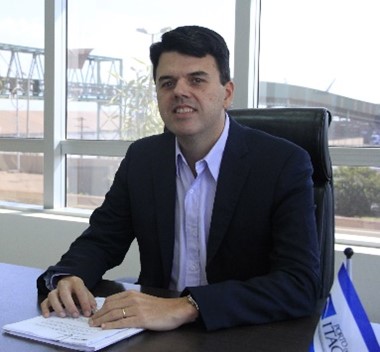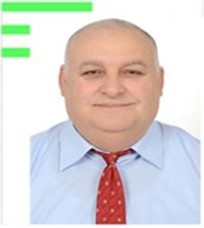
Professor Ana María Pita Grandal, Phd in Tax Law, Faculty of Judicial Sciences and Labour, University of Vigo, Spain
Keynote Title – “BEPS and its effects on State legislation”
Abstract – The BEPS project promoted by the OECD has had remarkable results. The report issued revealed the existence of important technical defects in the legislation of the States.
At the same time as the BEPS results were made public, many States, Spain among them, began to introduce modifications to their regulations in order to anticipate the BEPS Plan Actions.
The results of the BEPS plan have placed the States at a very important crossroads: the realization of a profound reflection on the solutions that the tax system provides to situations that are new from every point of view.
The proliferation of double taxation treaties and the impact of new technologies on the economy are likely to bring about a paradigm shift in tax law.
In general terms, these are the central aspects of my keynote.
Short Bio – 1984 – Doctorate in Tax Law; 1987-1999 Professor of Tax Law at the University of Santiago de Compostela; From 1999- Professor of Tax Law at the University of Vigo. Head of Tax Law; From 2002 to 2008 Department Director; From 2010 to 2016 Dean of the Faculty; She has supervised 15 doctoral theses and another 6 in development; Her lines of research are developed in internal and international taxation.
Professor António Cardoso, Professor Assistant in Faculty of Human and Social Sciences (FCHS), at University Fernando Pessoa (UFP), Porto, Portugal

Keynote Title: “Dynamic capabilities of organizations in the face of digital transformation and crisis situations”
Keywords – Dynamic capabilities, industry 4.0, digital transformation, public crisis, competences
Abstract – Today’s business environment presents a series of challenges to corporations due to accelerated change, uncertainty, rupture and transition, ambiguity, fast growth and hyper competition. As a result, organizations are required to respond and adapt to an increasing number of new challenges. Therefore, modern organizations must develop processes and practices that enable them to maintain consistent and sustainable growth in order to survive. This talk analyses the dynamic capabilities that organizations must apply in order to face digital transformations as well as environmental, economic, financial and health crisis situations. The theory of dynamic capabilities (Teece, 2007) addresses the reconfiguration and development of organizational skills in the face of intense changes, observing organizational environment and resources. Enterprises with strong dymanic capabilities (sensing, seizing, and reconfiguring) are innovative and entrepreneurial. The four industrial revolution (Industry 4.0), offers both opportunities and challenges for sustainable development, and it is vital to creating competitive advantages among manufacturing industries, organizations and national economies. The digital transformation has changed the traditional approach to production and operations management. Also, it offers potential for improvement in product development, production efficiency, customer service, and sustainable development. However, literature shows that the adoption of new technologies provides some challenges and barriers specifically to SMEs (Orzes et al, 2019): economic and financial, cultural, competences and resources, legal, technical, and implementation process. The global pandemic crisis caused by COVID-19 has placed SME’s under pressure to survive as it obliged them to respond to the crisis (Guo et al, 2020). Therefore, the use of dynamic capabilities provided by the adoption of new digital technologies can be used to respond to the public crisis.
Short Bio – Is Assistant Professor in Faculty of Human and Social Sciences (FCHS), at University Fernando Pessoa (UFP), Porto, Portugal, Department of Communication and Department of Business Sciences, since 1993, having assumed several coordination’s of study cycles (Bachelor, master’s, and MBA) and was member of several scientific bodies (pedagogical and scientific advice).
He holds a degree in Marketing (University Fernando Pessoa), a M.Sc. in Marketing & Design (University of Minho), and also a PhD in Textile Engineering: Management and Design (University of Minho – PT). He is currently conducting a post-doc in Management and Digital Transition (University of Vigo – SP).
His research interests include Strategic Management, Marketing and Advertising, Branding, Consumer behaviour, Sustainability and development, Entrepreneurship and Innovation, Digital transformation, about which he published several articles during the course of his career.
He has collaborated with several national and international universities (Berakhah Higher Education Institute (BR), Leanorte Higher Education Institute (BR), Luso-Brazilian Institute of Higher Education (BR), Faculty of Agudos (BR), Higher Institute of Social Service of Porto; Higher School of Business Sciences (ESCE) of the Polytechnic Institute of Viana do Castelo (IPVC); Universidad Cardenal Herrera CEU (SP); Higher Institute of Information and Administration Sciences) in recent years.
He is a registered member of FP-B2S (Center for Research in Social and Behavioral Sciences) at UFP, Founding member and member of the CEISDTADT Advisory Council (Center for Studies and Research on Security and Defense of Trás-os Montes and Alto Douro), Invited researcher at GEFIL (Galician Group of Studies for Training and Labor Insertion) from University of Santiago de Compostela – Spain, Post-doc researcher at ECOBAS (Economics and Business Administration for Society), School of Economics and Business Administration of the University of Vigo (SP).
Dr Eduardo de Carvalho Lago Filho (Ted Lago), C.E.O of Emap – Porto do Itaqui, Brazil

Keynote Title: “Porto of Itaqui: Logistic Hub of the Brazillian Center North Corridor”
Abstract – Brazil is one of the main producers and exporters of protetin to the world. The Center North region is supplying this demand throught a modern and efficiet logistic corridor, having the Port of Itaqui as it’s main hub. From the farm to the port, we will present what makes this part of Brazil a powerhouse for the agribusiness, generating development and new investments.
Short Bio – Degree in Business Management, with graduate studies in Corporate Finance (IAG/PUC-RJ). Worked for 13 years as Operations Director, and Vice-President of CMR, Coca-Cola Bottling franchise for the states of Maranhão and Tocantins, Brazil. Is C.E.O of Emap – Porto do Itaqui, Brazil.

Professor Hüseyin Uzunboylu
Keynote Title: “Publishing articles in High Impact factor Journals: Perspectives of Scopus and Web of Science
Short Bio – Member, Higher Education Planning, Supervision, Accreditation and Coordination Board, Nicosia, North CYPRUS
Editor-in-Chief, Cypriot Journal of Educational Sciences (ERIC& SCOPUS)
President, Cyprus Educational Sciences Association (Members of EERA& WERA)
Contact: huseyin.uzunboylu@gmail.com
Bio: Huseyin Uzunboylu graduated from Anadolu University, completing a degree in BSc Educational Communicating and Planning in 1991. He graduated from Ankara University; completed a degree in MA Curriculum and Instruction in 1995 and completed PhD in area of Educational Technology in 2002. He became Assistant Professor in 2013, Associate Professor in 2015 and Professor of Educational Technology in 2010 at Cyprus Near East University. He was elected to member of “Higher Education Planning, Supervision, Accreditation and Coordination Board” by the Republican of Parliament in November in 2019.